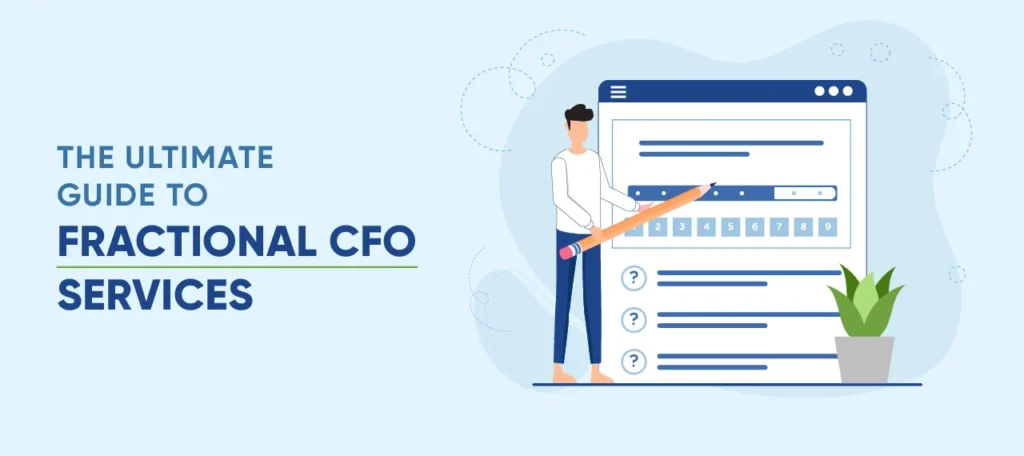Contemporary businesses face increasing challenges in streamlining their financial operations, ensuring compliance, and strategically planning for growth. Hiring a fractional CFO is an efficient solution that allows companies to access the financial expertise of a Chief Financial Officer without the cost of a full-time executive. This guide will provide an in-depth look at what a fractional CFO does, why they are valuable, and how they can transform a company’s financial health.
What is a Fractional CFO?
A Fractional CFO is a part-time Chief Financial Officer who works with businesses on a contractual basis. Unlike a full-time CFO, a fractional CFO offers expertise for several hours or projects, helping companies to make informed financial decisions. They provide the same strategic insights and economic leadership as a traditional CFO. Still, they are more cost-effective and beautiful to startups, SMEs, and companies in transition or growth stages.
Why Choose a Fractional CFO Over a Full-Time CFO?
Hiring a full-time CFO may only be feasible for some organisations due to high salary demands and the associated overhead costs. This is where a fractional CFO adds significant value:
- Cost Efficiency: A fractional CFO provides top-tier financial expertise without a full-time salary, benefits, or long-term commitment.
- Scalability: Businesses can scale up or down depending on their needs, engaging the CFO for a specific project or a few days per month.
- Flexibility: Fractional CFOs bring flexibility, allowing businesses to access financial expertise when needed without the rigidity of a full-time hire.
Key Responsibilities of a Fractional CFO
A fractional CFO’s duties extend beyond routine bookkeeping and accounting tasks. They bring a strategic, high-level perspective on the company’s financial health and goals. Below are some of the primary responsibilities a fractional CFO undertakes:
1. Strategic Financial Planning
A fractional CFO develops a tailored financial strategy aligned with the company’s goals and objectives. This involves forecasting, budgeting, and long-term financial planning, giving business owners a clear roadmap for growth.
2. Cash Flow Management
Cash flow is the lifeblood of any business, and a fractional CFO ensures steady cash flow to meet operational needs and fund growth opportunities. They monitor cash flow patterns, identify bottlenecks, and recommend adjustments to manage cash flow.
3. Financial Reporting and Compliance
Fractional CFOs ensure that all financial reports meet industry standards and comply with regulatory requirements. Providing timely and accurate reporting enables transparency and accountability, making it easier for business owners to make informed decisions.
4. Cost Optimization and Profitability Analysis
Through in-depth analysis, a fractional CFO identifies areas where costs can be reduced without compromising quality. They also analyse profitability by product, service, or client segment, helping businesses focus on the most lucrative opportunities.
5. Raising Capital
A fractional CFO can help secure funding from banks, venture capitalists, or private investors for companies looking to expand. They create compelling financial narratives, pitch decks, and detailed projections, making the business attractive to potential investors.
6. Financial Systems Implementation
Implementing robust financial systems is essential for businesses to scale efficiently. A fractional CFO can assess the company’s current systems, recommend technology solutions, and oversee the implementation of accounting software, ERP systems, or other financial tools.
Benefits of Hiring a Fractional CFO
Access to Expertise at a Fraction of the Cost
Hiring a full-time CFO can cost upwards of $150,000 annually, whereas a fractional CFO can offer the same expertise for a fraction of the price. This model allows companies to access senior financial leadership without the hefty commitment, making it an ideal solution for growing businesses.
Objective, Third-Party Perspective
As a part-time resource, fractional CFOs bring a fresh, unbiased perspective. They can identify inefficiencies, misaligned goals, or potential risks internal employees might overlook. This objective insight is invaluable for businesses that streamline operations and optimise profitability.
Quickly Adapt to Changing Needs
The fractional CFO model is inherently flexible, allowing businesses to adjust the level of service as needed. During rapid growth or economic uncertainty, companies can increase their engagement with their fractional CFO to navigate challenges and capitalise on opportunities.
When Should a Business Consider Hiring a Fractional CFO?
While every business can benefit from financial expertise, certain situations make hiring a fractional CFO particularly valuable:
- Rapid Growth Phases: As businesses grow, financial complexity increases. A fractional CFO provides the strategic insight to manage growth responsibly and avoid financial pitfalls.
- Financial Distress: Companies facing cash flow problems, declining profitability, or high operational costs can benefit from a fractional CFO’s expertise in turnaround strategies.
- Preparing for Funding: Whether seeking bank loans or venture capital, a fractional CFO helps businesses prepare financial statements, forecasts, and narratives to secure funding.
- Merger or Acquisition: During M&A activities, fractional CFOs play a critical role by providing accurate valuations, conducting financial due diligence, and supporting the negotiation process.
How to Choose the Right Fractional CFO
Selecting the right fractional CFO can make a significant difference in achieving financial goals. Here are some key factors to consider:
Industry Experience
Look for a fractional CFO with experience in your specific industry. Industry expertise ensures they understand the market dynamics, regulations, and financial challenges unique to your business.
Proven Track Record
Examine the fractional CFO’s portfolio for successful projects, such as cost-cutting initiatives, funding achievements, or system implementations. A strong track record indicates their ability to deliver results and handle complex financial challenges.
Cultural Fit
Although fractional CFOs work part-time, they interact closely with your team. Finding a professional who aligns with your company’s values and culture promotes better collaboration and smoother integration into business operations.
Clear Communication Skills
The ability to translate complex financial jargon into actionable insights is crucial. A competent fractional CFO should communicate clearly, enabling business leaders to make well-informed decisions based on accurate data.
The Impact of a Fractional CFO on Business Growth
Fractional CFOs empower companies by enhancing financial decision-making processes. Their strategic input helps businesses make data-driven decisions, allocate resources wisely, and minimise risk. By leveraging the skills of a fractional CFO, companies can strengthen their financial foundation, which in turn supports sustainable growth.
A fractional CFO doesn’t merely manage the numbers; they position businesses to reach their potential. From startups aiming for scalability to mid-sized companies preparing for expansion, fractional CFOs are pivotal to navigating the complexities of business finance.
Conclusion: Is a Fractional CFO Right for Your Business?
In conclusion, a fractional CFO offers an efficient, cost-effective solution for companies seeking strategic financial oversight without the high costs of a full-time hire. Whether a company is growing, experiencing financial challenges, or preparing for a significant transition, the expertise of a fractional CFO can be instrumental in achieving business objectives.
By integrating financial strategy, optimising costs, and ensuring compliance, a fractional CFO brings valuable insights that allow business leaders to focus on core operations confidently. As financial demands grow, having a seasoned professional on your team—even part-time—can be a game-changer for long-term success.












